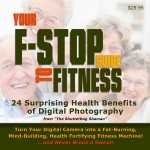 Some of these fine young men and women, who volunteered to serve their country, won’t come back the same.
Some of these fine young men and women, who volunteered to serve their country, won’t come back the same.
Many will come back fighting Post Traumatic Stress Disorder, or PTSD. In fact the numbers affected are staggering.
Currently, (July 2013) more than 850,000 veterans are in a wait state without benefits while the Department of Veterans Affairs decides whether their PTSD disability claims are valid.
But that’s just the tip of the iceberg. Many never seek treatment for their condition or even know they have it.
According to the National Institute of Mental Health, approximately 7.7 million American adults age 18 and older, or about 3.5 percent of people in this age group in a given year, have Post Traumatic Stress Disorder.
That means there are an awful lot of people out there who need help, but:
- Don’t know it
- Don’t know where to turn for help
- Are too embarrassed to seek out help
- Have sought help, but not found the treatments effective
- Would prefer to help themselves, but don’t know how
For those who aren’t familiar with PTSD, here is an excerpt from a free publication put out by The New York State Office of Mental Health, courtesy of the National Institute of Mental Health, and the National Center for Post-Traumatic Stress Disorder:
What is Post-Traumatic Stress Disorder (PTSD)?
PTSD is a real illness. People may get PTSD after living through a disturbing or frightening experience. It can be treated with medicine and therapy.
You can get PTSD after you have been:
- Raped or sexually abused
- A victim of emotional or physical abuse by someone in your family
- A victim of a violent crime
- In an airplane or car crash
- In a hurricane, tornado, or fire
- In a war
- In an event where you thought you might be killed, or
- After you have seen any of these events
If you have PTSD, you often have nightmares or scary thoughts about the experience you went through.You try to stay away from anything that reminds you of your experience.
You may feel angry and unable to trust or care about other people.You may always be on the lookout for danger.You can feel very upset when something happens suddenly or without warning. (end of NYS excerpt)
The more I read about PTSD, it’s symptoms and treatments, and the confusion and mystery over what really helps, the more I am reminded of a study by psychologist and university professor, Dr. Charles A. Rapp.
It was described in his famous book, “The Strengths Model”. In the section titled, “Talents and Skills” Dr. Rapp told of a man, long hospitalized with mental and physical abnormalities (pg.95). He descibed how when this man was directed to pursue his passion for photography (even though his photos never sold anywhere) he was released within 2 months from the hospital with a clean bill of health. Even more compelling was the fact that this previously troubled man never again returned to the hospital until his death from pneumonia 20 years later..
Merely pursuing a hobby that interested him, photography in particular, was enough to set this man on a course to a long and healthy life.
Photography helped this man beat both his mental and physical challenges.
This sounds exactly like what our affected veterans and other trauma victims need.
But currently, there is no formal course or structure for making photography available as therapy to those troubled by physical or mental challenges. But there should be. And that’s the focus of my website and this article.
Anyone interested in photography can tell you that there is a calming effect of searching for and always finding the beauty in this world. Any photographer will tell you of the zen-like focus of attention one comes to when consumed with creating an image. You block out all others problems and concerns in your life, you cannot consciously hear the sounds around you, you cannot see distractions beyond the viewfinder. You are consumed by the scene you hope to capture to the exclusion of all else.
As an aside, hundreds of studies can be found that document a viewers therapeutic reaction to pictures (paintings and photographs).
It is widely accepted in psychological circles that colors can effect the mood of the people who view them. Blue is often described as a calming color while red is said to excite. Yellow is cheerful and black depressing.
A persons mood can also be effected by the subject portrayed in the scene. Certain landscape scenes have a calming effect while certain city-scapes tend to increase tension.
It is well documented that viewing finished photos is therapeutic.
What surprised me however, was how little documentation (almost none beyond the case studies and surveys documented on my website and in my book) could be found that gave evidence of the therapeutic effects of TAKING photographs.
Marcia would disagree. Carolyn would disagree. Ken would disagree. They shared their stories of how photography helped them conquer some pretty nasty demons in my book. The hundred or so survey letters I’ve received stating the positive effects of photography would disagree.
I am really surprised not to find more accounts online which tell of the wonderful effects of photography on the human mind and body. I would like to change that. But I need your help.
In order to build a database of compelling information and spread the word on the physical and mental health benefits of photography, won’t you please share any relevant stories of benefits you have received (no matter how big or small) through your involvement in photography in the comments below?
That would be a big help.
Also, as photographers we all love to snap up the latest and greatest new gadgets that promise to take our photos to a whole new level. We spend hundreds, thousands of dollars even on new lenses, lights, tripods and gizmos for just a chance to capture that next awe inspiring, once in a lifetime photo. Won’t you please consider donating just a tiny fraction of that below to help me reach out to the deserving men and women who haven’t yet learned of the benefits photography can bring?
With the help of your generous donations I would like to:
- Distribute free copies of my book, “Photo Fitness Phenomenon”
- Initiate photography classes specifically designed to help those with PTSD
- Collaborate with treatment centers and therapists to offer a “Photo-Therapy” alternative
- Seek donations of cameras and gear from manufacturers and local retail shops
- Give informational seminars to local veteran’s groups explaining the benefits
- Prepare research grant applications for major funding and support
- Continue hosting this website and raising awareness to help more victims
Any help you can give, to help our troubled veterans see a better world after looking at some of the worst horrors created by man, to help them see the beautiful world that we as photographers see, will be greatly appreciated and put to good use.
We can all help those who volunteered to serve and protect our freedom, and were harmed in this pursuit. And we should. Share your story. Donate. Tell a vet about this website. It’s the least you can do to help. And might just be the best.
You can make your donation, securely, in any amount, using any card through the PayPal button just below:
My sincere thanks go out to all the photographers, and caring Americans just like you, who shared just a little of their bounty so that these brave men and women who’ve sacrificed so much, and seen such horrors, can begin to see a better world today through photography. Thank you for your support.
Bob Schwarztrauber

